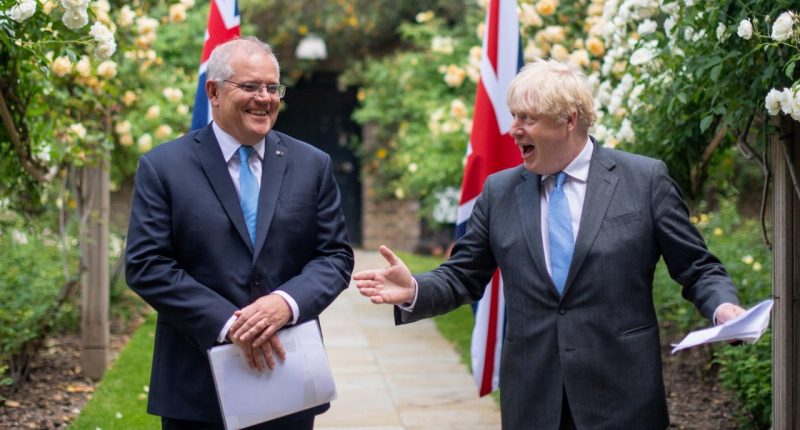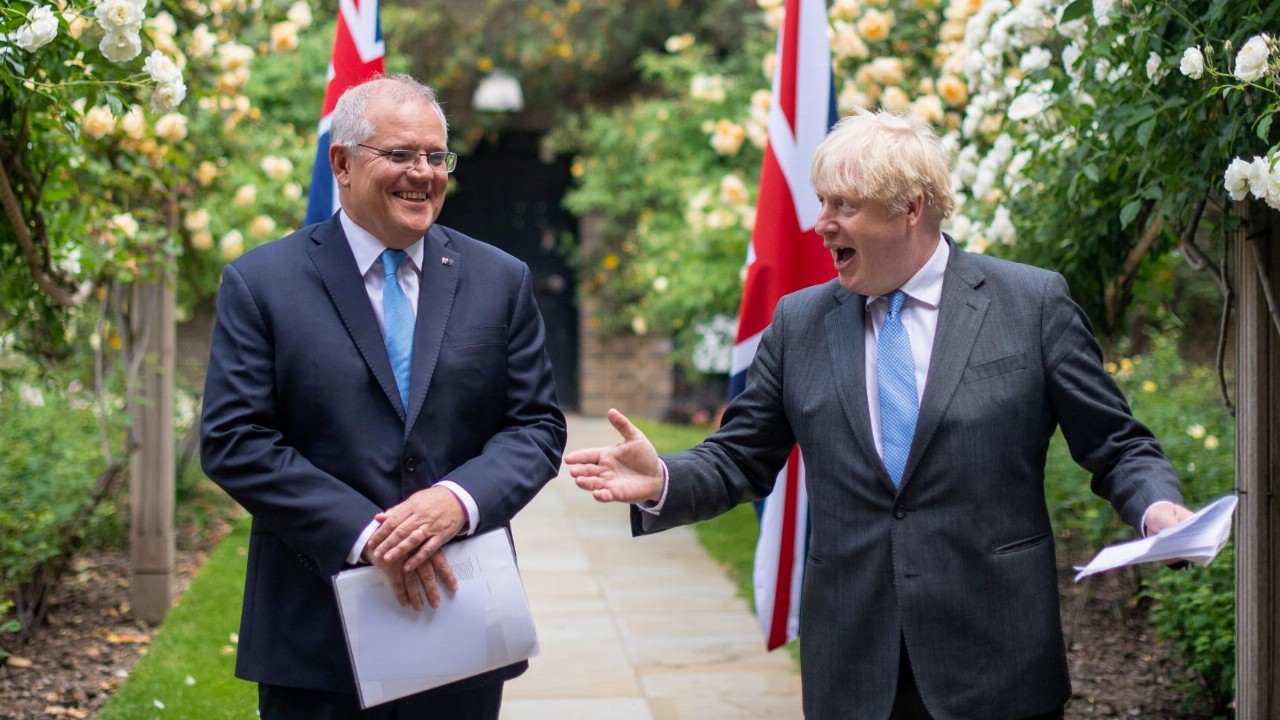- Australia and UK outline the details of a key free trade deal struck over dinner between the nations’ prime ministers on Monday night
- The deal eliminates tariffs on all goods, with some tariffs to be lifted as soon as the agreement comes into effect and others to be rolled back over time
- For the UK, tariffs on British cars and whiskeys are set to be lifted immediately once the deal comes into effect
- For Australia, winemakers will be able to export their products to the UK duty-free
- The deal also makes it easier for working holidaymakers to stay and work in the reciprocal country
Winemakers, whisky lovers and farmers are among the biggest winners from the UK-Australia trade deal struck between the nations’ prime ministers this week.
Australian Prime Minister Scott Morrison and UK Prime Minister Boris Johnson reached an in-principle agreement on Monday night, UK time, with the details of the deal outlined this morning.
Under the terms of the deal, goods will be available for sale between the countries tariff-free, and it will be easier for some Australians to work and live in the UK, and vice-versa.
Mr Morrison said this is the “right deal” for both countries and will drive economic growth and job creation in both countries.
“Australian consumers will benefit from cheaper products, with all tariffs eliminated within five years, and tariffs on cars, whisky, and the UK’s other main exports eliminated immediately,” the Australian PM said.
“The UK will liberalise Australian imports with 99 per cent of Australian goods, including Australian wine and short and medium grain milled rice, entering the UK duty free when the agreement enters into force.”
A final agreement in principle will be published in the coming days, with this legal document to then be passed by the parliaments of both nations before the deal comes into effect.
UK Prime Minister Boris Johnson said the deal, which is the UK’s first major trade agreement drawn up post-Brexit, is “global Britain at its best”.
“Today marks a new dawn in the UK’s relationship with Australia, underpinned by our shared history and common values,” Mr Johnson said.
“Our new free-trade agreement opens fantastic opportunities for British businesses and consumers, as well as young people wanting the chance to work and live on the other side of the world.”
Wheels, wines, whiskeys and wayfarers
One of the biggest winners from the free trade deal will be the UK motor industry, with Britain-made cars to have tariffs eliminated immediately.
This means iconic brands like Jaguar, McLaren and Bentley will be cheaper for the UK to sell and for Australians to buy.
The same goes for UK whiskeys, of which Scotland alone exported around £126 million (roughly A$231 million) last year. Distillers will be able to export their whiskeys to Australia tariff-free from the moment the trade deal comes into effect.
For the sweet tooth, British confectionary will also have tariffs lifted immediately.
On the inverse, Australian wine — which has recently been shut out of China in the Beijing-Canberra trade spat — will be sold to the UK duty-free from the onset of the trade deal.
Meanwhile, tariffs on Australian beef and sheep will be rolled back over ten years until they, too, will be eliminated completely.
Dairy products will have tariffs eliminated over five years.
The trade deal will also make it easier for working holidaymakers to stay and work in the reciprocal country. Backpackers will be able to stay in each country for three years and the cut-off age has been lifted from 30 to 35.
At the same time, British farmers will have access to a specialist visa to work in Australia.
The leaders of the two countries made last-minute concessions on Monday evening before reaching the agreement over dinner.







